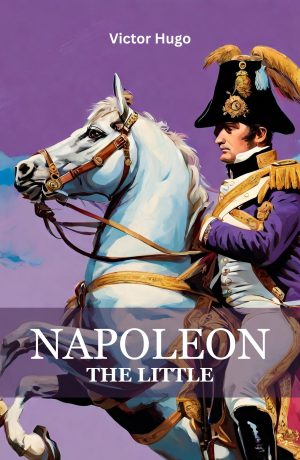Snows of Kilimanjaro And Other Stories [hardcover] Ernest Hemingway
₹845.00 ₹895.00
Related products
-
Classic Fiction, literature, Literature & Fiction
The House of Mirth [hardcover] Edith Wharton
0 out of 5(0)A bestseller when it was originally published nearly a century ago, Wharton’s first literary success was set amid the previously unexplored territory of fashionable, turn-of-the-century New York society, an area with which she was intimately familiar. The tragic love story reveals the destructive effects of wealth and social hypocrisy on Lily Bart, a ravishing beauty.
SKU: abhptuom -
Fiction, literature
The Moon And Sixpence [hardcover] W. Somerset Maugham
0 out of 5(0)The Moon and Sixpence is a novel by W. Somerset Maugham first published on April 15th, 1919. It is told in episodic form by a first-person narrator, in a series of glimpses into the mind and soul of the central character Charles Strickland, a middle-aged English stockbroker, who abandons his wife and children abruptly to pursue his desire to become an artist. The story is in part based on the life of the painter Paul Gauguin.
SKU: abhputmas -
Fiction, literary fiction, literature, Literature & Fiction
Fate or chance [hardcover] Wilkie Collins
![Fate or chance [hardcover] Wilkie Collins](https://abhishekpublications.com/wp-content/uploads/2024/12/1-41-300x453.jpg) Fiction, literary fiction, literature, Literature & Fiction
Fiction, literary fiction, literature, Literature & FictionFate or chance [hardcover] Wilkie Collins
0 out of 5(0)William Wilkie Collins (8 January 1824-23 September 1889) was an English novelist and playwright known especially for The Woman in white (1859), a mystery novel and early sensation novel and for The Moonstone(1868)
SKU: abhpufoc -
Biography, Coming soon, literature
Napoleon The Little By Victor Hugo (Hardcover)
0 out of 5(0)Key themes and ideas presented in “Napoleon the Little” include: Satire of Napoleon III: The pamphlet is a biting and satirical portrayal of Louis- Napoléon Bonaparte (Napoleon III), who had orchestrated a coup d’état in 1851 and eventually declared himself Emperor of the French. Hugo uses satire to criticize Napoleon III’s autocratic tendencies, his suppression of democratic institutions, and his manipulation of power. Authoritarianism: Hugo criticizes Napoleon III’s consolidation of power, comparing his actions to those of his uncle, Napoleon Bonaparte, who became Emperor of the French in the early 19th century.
SKU: n/a

![Snows of Kilimanjaro And Other Stories [hardcover] Ernest Hemingway](https://abhishekpublications.com/wp-content/uploads/2024/12/1-38.jpg)
![The House of Mirth [hardcover] Edith Wharton](https://abhishekpublications.com/wp-content/uploads/2024/12/1-48-300x480.jpg)
![The Moon And Sixpence [hardcover] W. Somerset Maugham](https://abhishekpublications.com/wp-content/uploads/2024/12/1-53-300x492.jpg)

There are no reviews yet.